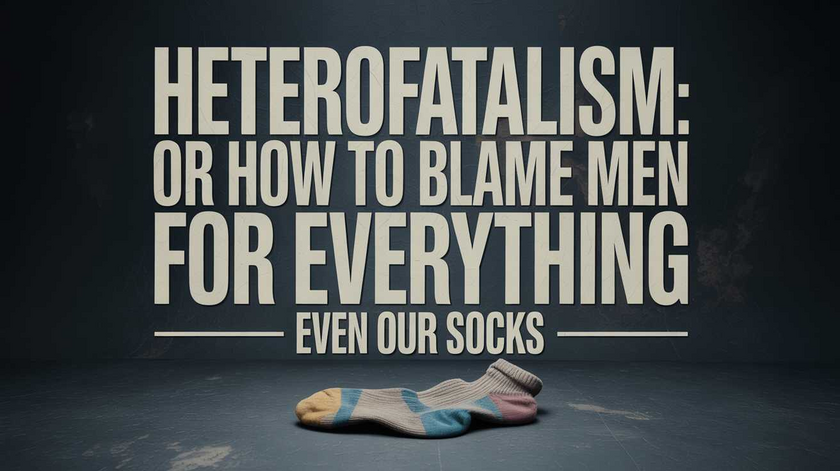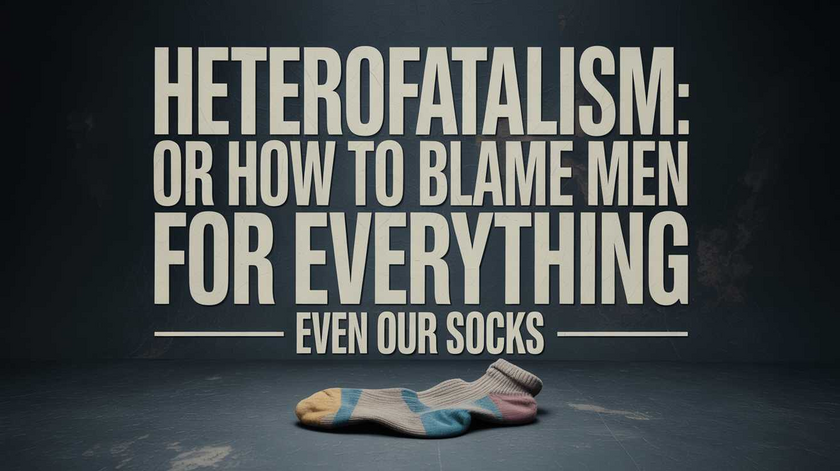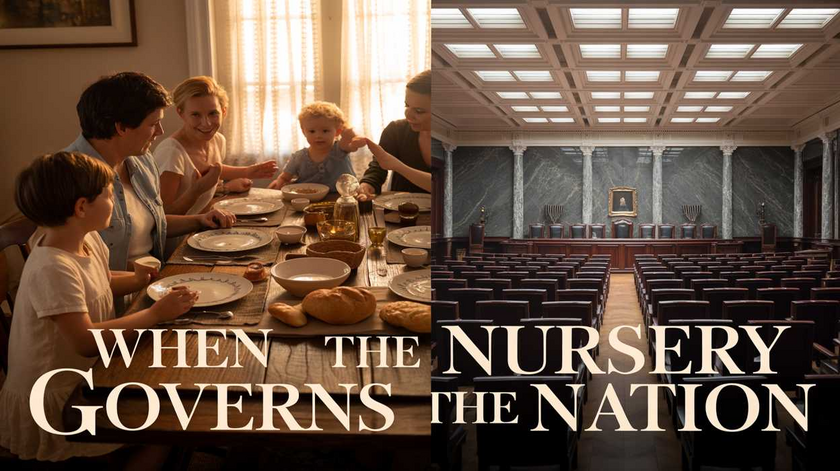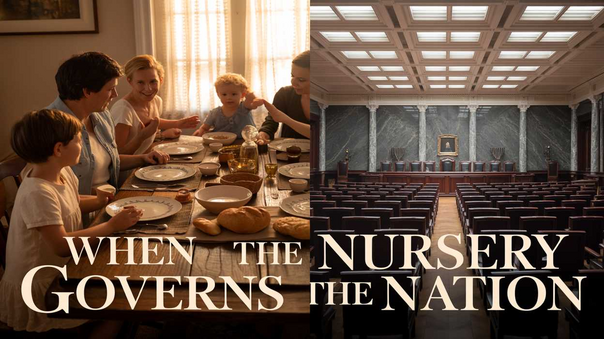
This is a response to a recent New York Times article by Jean Garnett titled “The Trouble With Wanting Men.” The subtitle says it all: “Women are so fed up with dating men that the phenomenon even has a name — heterofatalism. So what do we do with our desire?”
Sometimes, the best response is a little humor while flipping the script. See what you think.
"Heterofatalism: Or How to Blame Men for Everything, Even Our Socks"
Ah, “heterofatalism” — the brand-new term coined for the collective exasperation of women who, after navigating the complex world of dating, come to the conclusion that men are the root of all relationship woes. You see, the issue isn't just that men are occasionally anxious, emotionally distant, or a little too obsessed with their sports teams; no, the real problem is that these poor souls — with all their confusing desires, communication issues, and tendency to occasionally ghost you after a couple of drinks — are making it impossible for women to live happily ever after.
Who needs "old-fashioned man-woman stuff," right? We should really just get rid of men altogether, except... well, hold on. It seems like the author might still enjoy the idea of men, as long as they’re perfectly self-deprecating, emotionally available, not so needy, and able to decode all of her mood swings without missing a beat. Apparently, we’re supposed to be sweet, gentle, and constantly checking in with how she feels — but also not too available, because that would make us “needy.” Are you keeping up, men? No? It’s okay, because we aren’t expected to.
What If We Flipped the Script?
Now, imagine if the shoe was on the other foot. What if a man had these same expectations of you Jean Garnett? What if you had to live up to these impossible standards every time a relationship or date rolled around?
For example, let’s say you’re trying to date someone, and he expects you to be emotionally available all the time, always knowing exactly what he’s feeling, always ready to discuss his feelings — at his convenience. Now imagine if you were the one constantly apologizing for not responding to text messages in 90 seconds flat because you were busy with life, work, or, you know, anything else. Or imagine being told you were "too anxious" to handle a simple conversation because you were stressed over your busy schedule. Does it seem fair that men are expected to always be the ones to “man up” emotionally, while women are allowed to retreat into their own anxiety and demand validation from men?
Also, here’s a fun thought experiment: What if, as a man, you had to hear all the time about how you were the problem in every dating situation? Imagine your date explaining how she loves the “good guy” archetype but constantly finds him lacking because he doesn’t meet every single emotional need immediately. The “good guy” who’s gentle, sweet, and not too self-deprecating — just enough to make you feel like a glorified emotional ATM. It’d be pretty exhausting, wouldn’t it?
Emotional Labor: A Two-Way Street
Let’s get real for a moment. The whole concept of emotional labor often gets pinned solely on men — the idea that women are somehow left to pick up the emotional slack in relationships. But if we take a closer look, we see a different picture. If the standard is that men should always be emotionally available, always interpret every word and gesture in the right way, shouldn’t women also take on the responsibility of understanding the emotional needs of their partners? Isn’t it unfair to expect men to constantly decode the mystery of “how you’re feeling” without giving them the same space to feel confused, anxious, or uncertain about what’s going on in the relationship?
What if men were to complain about the “hermeneutic labor” they had to perform just to keep a relationship afloat? Imagine if men spent every conversation analyzing why you were saying one thing and meaning something else. If men constantly had to decode your emotional signals — every pause, every silence, every hint — would we be quick to dismiss it as just part of being a man? Or would we call it what it is: exhausting?
Isn’t It Time for a Little Empathy?
Now, let’s circle back to that romantic ideal — the “good guy” who wants to be loved, but can’t seem to get it right because he's “too anxious,” “too confused,” or “too emotionally unavailable” when it matters. But what if, just maybe, the problem isn’t his inability to meet her needs, but the sheer weight of the unrealistic expectations placed upon him? Imagine being a man, constantly told that you are too much or not enough at the same time — one minute, you need to be emotionally open, the next you’re told you’re too emotional.
Let’s flip the script.
Imagine you’re the one who needs a little breathing room — just some space to think.
But your partner won’t let it go:
“Why can’t you just communicate like a grown-up? What are you, emotionally stunted?”
And when you finally admit you’re anxious or overwhelmed, you’re slapped with labels like “needy,” “hysterical,” or “too sensitive.”
Then he runs off to his buddies, and they all have a good laugh at your expense:
“Aww, poor little fraidy-cat princess. Guess she just can't woman up.”
Sound familiar?
Because that’s exactly what you and your friends did to him.
Doesn’t feel so good when the joke’s on you, does it?
Rewriting the Narrative
Maybe it's time to see men as humans rather than stereotypes. Men don’t exist just to fulfill emotional needs, and relationships should be about mutual respect, not endless demands. If we really want to evolve into better relationships, we need to recognize the emotional labor on both sides and give each other the space to be imperfect — without judgment.
Here’s a radical idea: instead of blaming men for the failures of the modern dating scene, let’s take a step back and realize that maybe we’re all a little messed up. And that’s okay. You don’t need us to “man up” — you just need us to be real, and we need the same from you.
And if we’re not perfect? Well, at least we’re not trying to make every relationship a philosophical debate about what does it mean to love and how can we both be completely vulnerable and emotionally invulnerable at the same time.
Pro tip: next time your man shows up with a little emotional confusion, give him a break. Men are not puzzles to be solved; we’re just humans trying to navigate a world that often doesn’t make sense to any of us.
And for the record: Men Are Good.



















